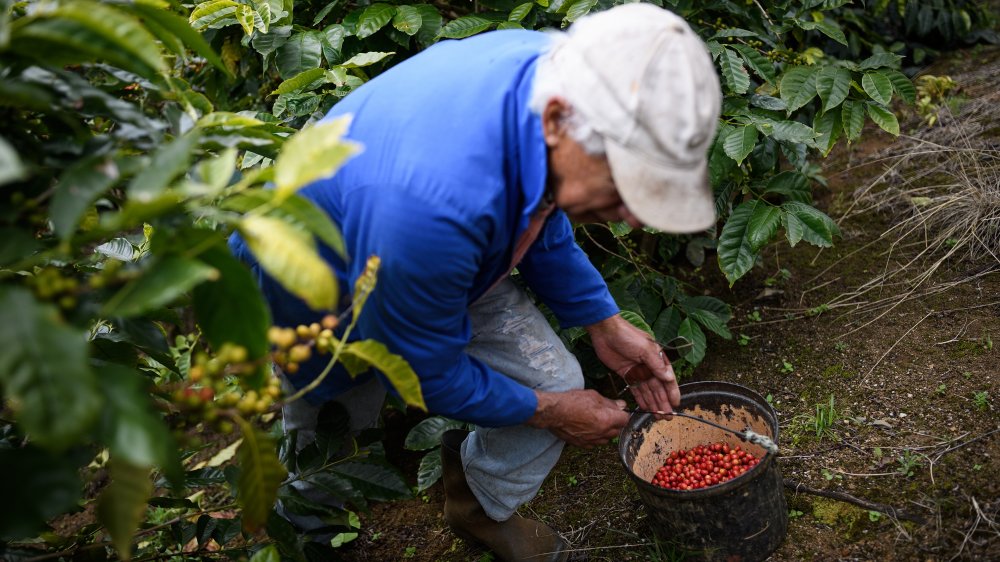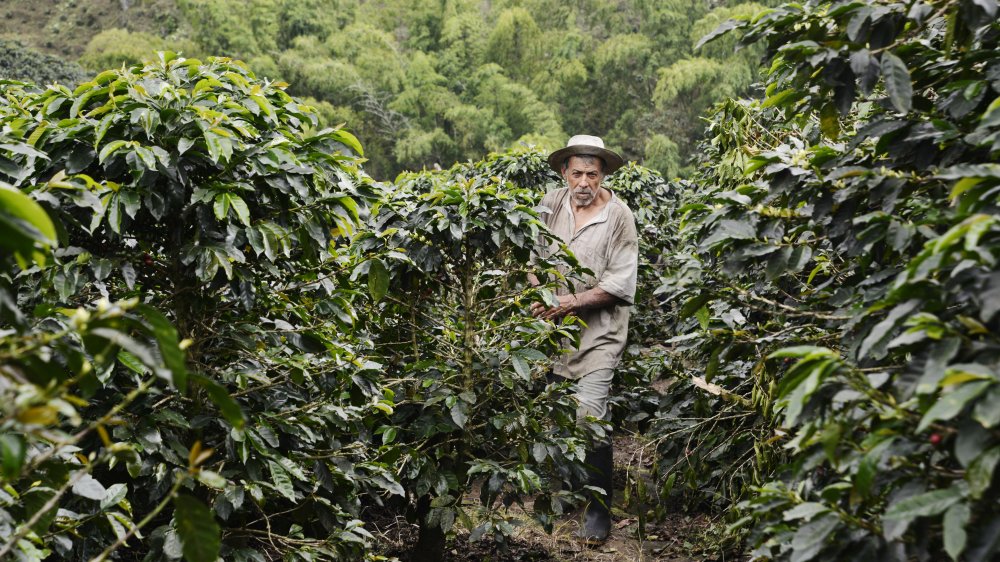Why Scientists Say A Global Coffee Crisis Is Imminent
Americans arguably hold few things dearer than their daily cup of coffee. A 2020 survey suggests that four out of five Americans are convinced they can't function productively without it (via CBS). We might not think twice about spending more than $4 on our ritual Starbucks grande skinny vanilla latte. But if coffee is a stable part of the daily routines of two-thirds of American adults (via MyFriendsCoffee), the coffee industry as a whole is anything but stable. More than 20 million small farmers across the tropics, from Mexico and South America to Africa, India, and Vietnam, rely on their coffee harvest to survive (via BBC). They have known one crisis after another over the past 30 years.
An international trade agreement that kept the price of coffee high fell apart in 1989. American coffee drinkers may have seen the headlines at the time but otherwise weren't affected much. But in Rwanda, where 80 percent of the economy was based on coffee, the collapse in prices helped tip the country into a violent civil war (via the New Internationalist). Coffee prices recovered in the mid-1990s, but increased production in Brazil and Vietnam led to another price collapse and coffee crisis, 1999-2003 (via the International Coffee Organization). Prices collapsed yet again in 2009, after south Asian growers flooded the market with cheap coffee (via Vox). Since then, more than half of coffee growers in Mexico and some Central American countries reported difficulty getting enough food to feed their families.
Climate change is making farms too hot for coffee plants
Today, two forces are combining to create a crisis that higher prices alone won't fix. The BBC declared yet another economic coffee crisis in 2019, as an oversupply from Brazil, the world's No. 1 coffee producer, sent prices below the minimum a farmer needs to just break even. In addition, scientists are describing a threat that goes beyond the ups and downs of the world market. Climate change is threatening the existence of the very plant where our all-important daily brew begins.
If you're still wondering whether climate change is real, ask Colombian coffee farmers. They told Vox just how a warming climate is threatening their way of life. Coffee is a very high-maintenance plant. It thrives in a very narrow temperature window: too cold, and the berries will freeze. If it's too hot, the berries don't grow properly. Farms in Colombia and other coffee-producing countries tend to sit at a particular elevation where this ideal temperature range can be sustained. But the temperature in Colombia's coffee region has increased more than 2 degrees Fahrenheit (about 1.2 degrees Celsius) since 1980. Climate change has also made rainfall patterns less predictable and created favorable conditions for coffee rust, a fungus that can devastate an entire crop (via Craft Coffee Guru).
Coffee farmers need help investing in solutions to climate change
Scientists predict that half the farmland able to sustain the coffee plant will be cut in half by 2050, according to Vox. Also, 60 percent of wild coffee species, which are used to breed more resilient cultivated plants, are at risk of extinction. Meanwhile, demand for coffee globally is increasing 2 percent a year, according to the BBC. While oversupply might be the problem today, in the near future farmers may not be able to get everyone that daily cup of Joe they can't seem to live without.
If farmers are going to stay in business, they need to adapt. Vox lists three possible solutions: plant shade trees to keep the coffee plants cool, relocate plants to higher elevations, or replace the crop with a more resilient coffee variety. But all of those potential solutions take money – something coffee farmers don't have under current coffee prices. "Nowadays, coffee production is equivalent to losing money," one farmer told Vox.
Any solution is going to take a huge investment. U.S. coffee chains Intelligentsia and Think Coffee are actively supporting the poor farmers who supply their beans. An economist at a coffee conference in 2019 proposed creating a $10 billion United Nations fund to save coffee, according to the BBC. José Sette, executive director of the International Coffee Organization, put it this way: "If we don't have the investments today, we might not have sufficient coffee in the future."


